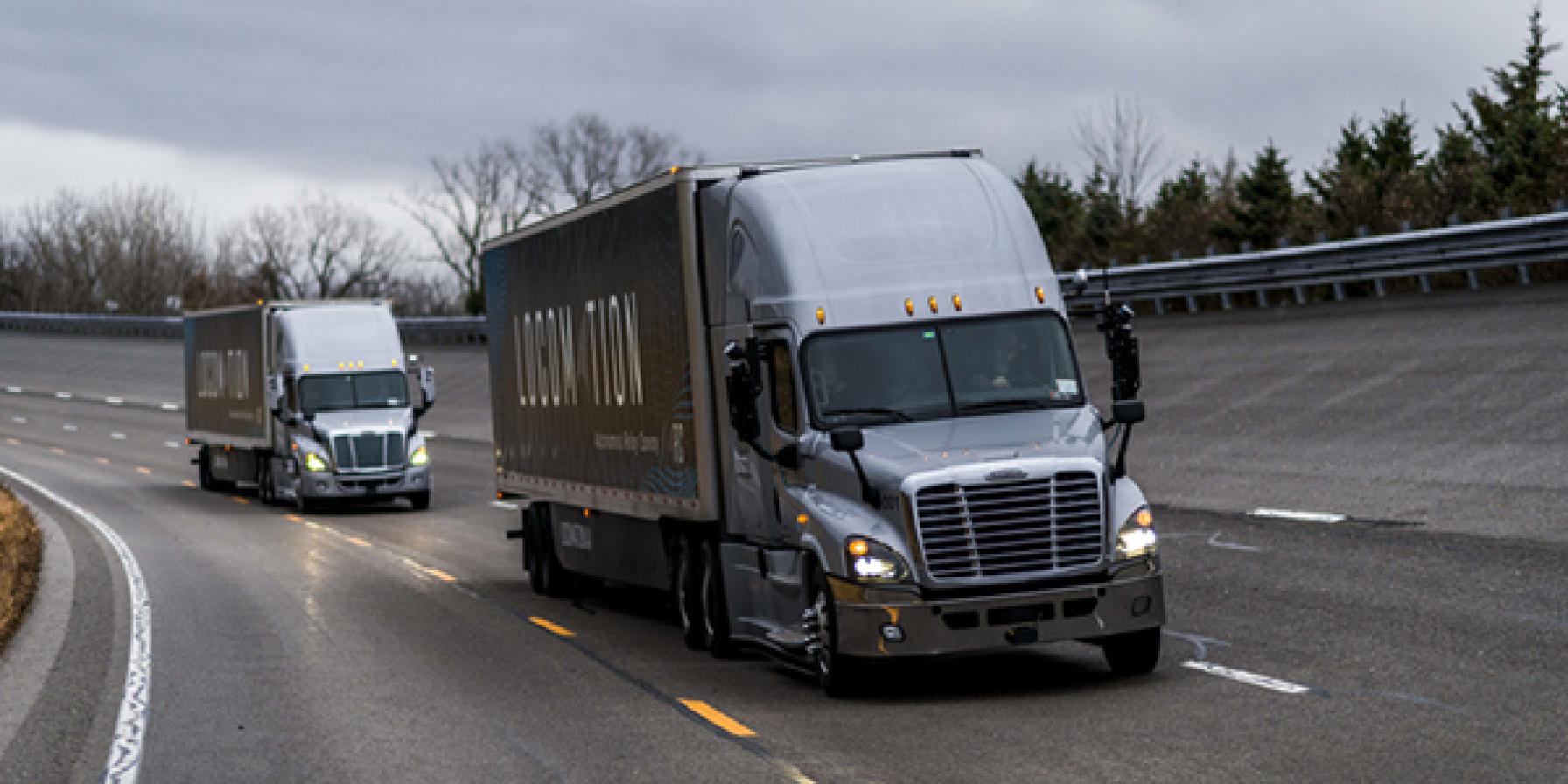- Home
- IBTTA Insights
- Tri-State Test Sets the Stage for Autonomous Truck Platooning
Stories
Tri-State Test Sets the Stage for Autonomous Truck Platooning


Tolling agencies in Pennsylvania, Michigan, and Ohio are at the center of a bold initiative to test platooning for automated long-haul trucks through one of the most important and heavily travelled freight corridors in the United States.
The Smart Belt Coalition marked a major milestone in October when it conducted a one-way trip test with autonomous trucking company Locomation. “It involved a two-truck convoy starting in Pittsburgh and making food donation stops at food banks in Duquesne, Pennsylvania; Toledo, Ohio; and Detroit, Michigan,” Thomas Insights reports. “The trucks platooned when driving on interstate highways—currently the only road types the method can be used on—and operated individually on local roads.”
Locomation conducted similar tests in Oregon and Idaho earlier this year and plans additional runs in Texas and Louisiana in the months ahead. But the added bonus in the upper Midwest is the mix of partners and expertise that have been involved with the experiment since it got underway in 2017.
A Model of Cross-State Cooperation
IBTTA members first heard about the Smart Belt Coalition in September 2017, when the Pennsylvania Turnpike Commission and the Ohio Turnpike and Infrastructure Commission shared details at the association’s Annual Meeting in Atlanta. At the time, Pennsylvania’s Craig Shuey and Ohio’s Randy Cole talked about a high-impact, multi-jurisdictional network that would operate with the economic benefit, safety and welfare of the partner states in mind.
With three state departments of transportation, two tolling agencies, seven research affiliates and the Federal Highway Administration all working collaboratively, the Coalition was already emerging as a model for cooperation across state lines and areas of technical expertise. Shuey and Cole said the project would span 173,863 lane miles of roadway, in a territory that accounted for 362.5 billion vehicle miles travelled and $1.3 billion in toll revenue per year.
Even at that very early stage, the benefits the partners expected from the Coalition were all about collaboration and learning. The presentation emphasized shared responsibility and skills, answering research questions, pooling financial and human resources, sharing expertise, increasing efficiency and tapping new funding opportunities, among the key advantages of a project at the cutting edge of autonomous vehicle implementation.
More Freight, Less Cost
The ultimate objective of the venture is simple, the Pittsburgh Post-Gazette explains.
“The goal is to move twice as many goods at a lower cost because platooning reduces the use of fuel through drafting, allowing the second vehicle to follow close enough that it has reduced air resistance,” the article states. So far, each vehicle has a driver at the wheel, prepared to take over from the autonomous system as needed. “Eventually, the second vehicle could operate without a driver, but that is considered many years down the road.”
The administrative and technical details aren’t simple. In fact, they sound a lot like the heroic, multi-year process tolling agencies went through to work out the details of regional toll interoperability. With a “patchwork” of regulations now governing platooning in different jurisdictions, it’s “imperative” for states to reach a common understanding on how the system will work, said Mark Kopko, Director of PennDOT’s Office of Transformational Technology.
“The goal is, if we have 12 states with 12 different rules, how can we make it as seamless as possible for the drivers to move from one state to the next,” Kopko told the Post-Gazette. “We think that’s just as important as the technology.”
Apart from testing the technology, he said the tri-state demonstration was important as a launchpad for the discussions ahead. “We thought this is an excellent starting point. It’s a good communications starter.”
Mark your calendar for IBTTA’s Technology Summit, May 2-4, 2021 in Atlanta.

Joining IBTTA connects you to a global community of transportation professionals, offering unmatched opportunities for networking, knowledge-sharing, and collaborative innovation in the tolling and transportation sector.
Follow IBTTA on social media for real-time updates on transportation trends and collaborative opportunities.






